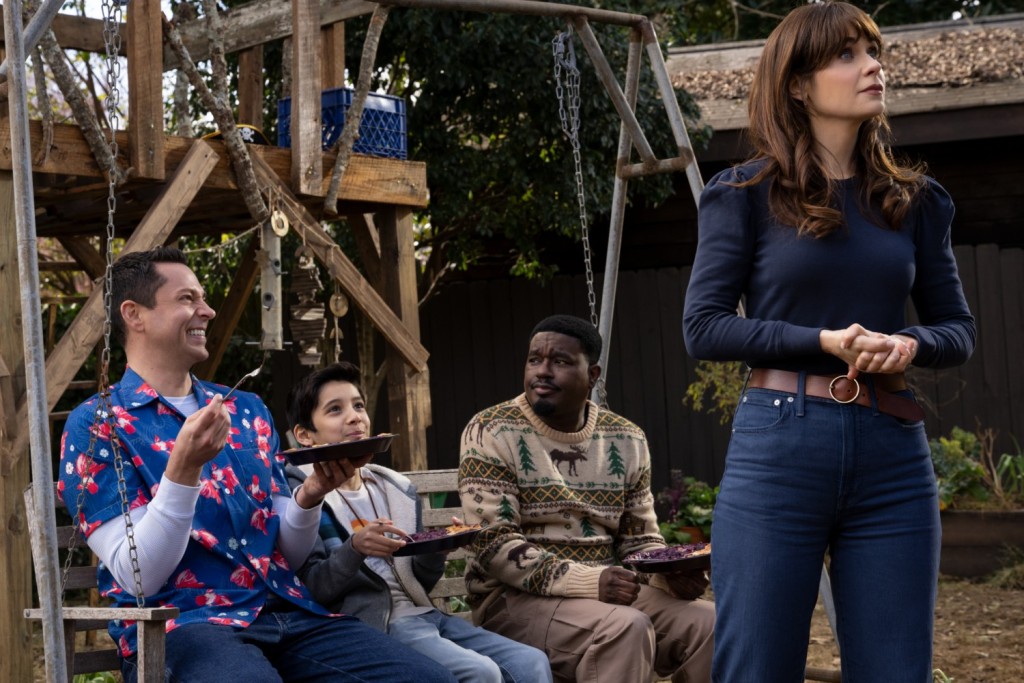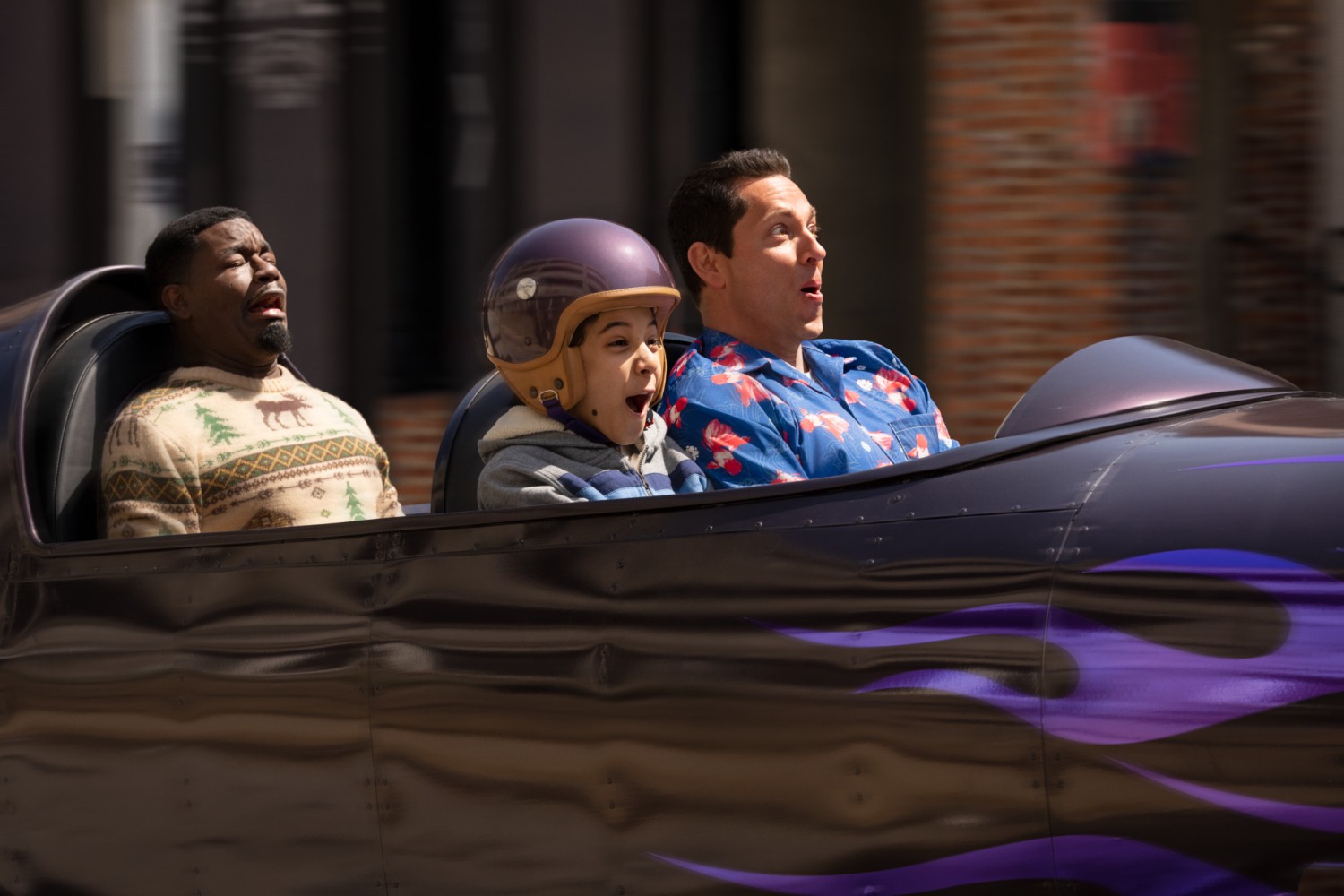By Dolores Quintana
I will admit that my expectations weren’t high for Harold and the Purple Crayon, but I was pleasantly surprised by the film. It was charming and sincere, not just a kid’s movie but a film that explores disappointed dreams of adults and the role of art and imagination in life. It has a storyline that can appeal to kids and adults. It’s playful and emotional. I really loved the cast, especially Lil Rel Howery, Tanya Reynolds, Benjamin Bottani, Ravi Patel, and, especially, Jemaine Clement and Alfred Molina as the narrator. Watching Tanya Reynolds behave as a real life porcupine was adorable. The comedy in the film really came to life with the work of the supporting cast.
The film’s synopsis says, “Inside of his book, adventurous Harold (Zachary Levi) can make anything come to life simply by drawing it. After he grows up and draws himself off the book’s pages and into the physical world, Harold finds he has a lot to learn about real life—and that his trusty purple crayon may set off more hilarious hijinks than he thought possible. When the power of unlimited imagination falls into the wrong hands, it will take all of Harold and his friends’ creativity to save both the real world and his own. Harold and the Purple Crayon is the first film adaptation of the beloved children’s classic that has captivated young readers for decades.”
Zooey Deschanel and Zachary Levi pulled their weight, and Deschanel, in particular, was given more to do than she normally gets, and it showed in her work. However, Zachary Levi was not the MVP of the cast and he should have been since he has the titular role as Harold. His work can be described as workmanlike and adequate except when he starts to show more as the film progresses. Sadly, it’s not enough to save his performance fully, but it’s more than I have seen him show ever.
It is a problem that I have had with the three leads of three recent family family films. The lead character, who by all rights should be the star of the show, isn’t and gives what can only be called a passable performance. In many of these cases, the slack was pulled up by the supporting cast, but that makes me wonder why one of them wasn’t the lead and what might have been.
Harold and the Purple Crayon had lots of undercurrents that posed questions in my mind, like the disappointment of artists who don’t get to fulfill themselves in their chosen crafts, the torture of working a retail job, and how people cause chaos in the world by doing whatever they want without considering the consequences of their actions, especially in movies where wonderous things happen.

That one came to the forefront with the actions of Harold juxtaposed with the actions of Gary Natwick. Even though Harold didn’t intend to cause chaos, he frequently does. In most family films, the consequences are rarely shown. In this film, they are, and that is refreshing.
Gary, as a villain, is awful, but you still see the sadness and disappointment that leads him to make bad choices. No one is painted as totally bad; there are levels to the characters’ motivations and actions. There’s a lot more about the characters and what makes them tick than there is in most family films. Gary’s storyline and Jemaine Clement’s performance have pathos and are really funny in a way that will keep adults entertained during the film.
I find that makes the film much more interesting and relatable. The director, Carlos Saldanha, who is a Brazilian animator who co-directed Ice Age, did an excellent job and has a light touch with the heavier concepts in the story. The writers David Guion and Michael Handelman built a strong story and characterizations. Props for setting the film in Providence, Rhode Island. It’s also nice to see a film set somewhere outside of the main population centers and the live action with the inclusion of animation works quite well.
Harold and the Purple Crayon is a joyous celebration of art and love that is kept from being sublime only by the performance of its lead actor. The supporting cast does wonderful and amusing work that would have been better served by a stronger lead. But still, it is a thoughtful, emotional, and entertaining film with a light touch on some serious subjects that still retains childhood magic. Director Carlos Saldanha deserves praise for his good work in adapting a beloved childhood book.













